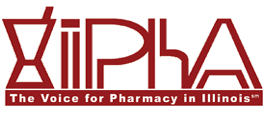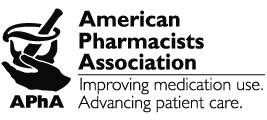U.S. DEA Physician Assistant Investigation Lawyer

Attorneys Assisting PAs With DEA Registration Defense Throughout the United States
There are many different types of medical professionals who work with controlled substances, and because of this, the Drug Enforcement Administration (DEA) will often conduct audits and investigations of providers to address concerns about drug diversion and drug trafficking. Physician assistants (PAs) may find themselves under scrutiny from the DEA based on how they have prescribed, administered, or dispensed certain types of drugs. To protect their DEA registration and their ability to continue to handle controlled substances, these providers should consult with an attorney before turning information over to DEA agents or complying with any requests.
At The Law Offices of Joseph J. Bogdan, Inc., our lawyers represent medical professionals throughout the entire United States, helping them address matters related to DEA registration, medical licensing, board certification, and more. We can help physician assistants respond to DEA investigations properly while protecting their rights and their ability to continue practicing medicine.
Addressing Issues Related to Controlled Substances in DEA Investigations
Physician assistants often work in a hospital or medical practice, and their responsibilities may include prescribing medications and administering or dispensing drugs to patients. Because of this, the DEA may investigate physician assistants either individually or alongside other medical professionals. These investigations may be based on the suspicion that a person has committed violations of the Controlled Substances Act (CSA), such as unlawful prescribing of controlled substances or conspiracy to possess or distribute a controlled substance.
A PA may face scrutiny due to their pattern of prescribing controlled substances or because DEA agents believe that they have issued prescriptions that are not medically necessary. If a provider prescribes controlled substances in higher proportions than other types of drugs or regularly issues prescriptions for large amounts or high doses of controlled substances, the DEA may see this as a sign that prescriptions are not based on patients' legitimate medical needs. An investigation will also usually involve a detailed review of patient records, prescription records, and security measures followed to prevent drugs or prescription pads from being stolen.
The DEA may also look at whether a physician assistant took the proper steps when treating patients to prevent illegitimate prescriptions. It may review patient intake procedures and look at whether a physician assistant thoroughly reviewed patients' medical histories and required patients to sign a pain management agreement. Agents may also look at whether a physician assistant performed detailed, thorough medical examinations and explored other types of therapies or medications before prescribing opioids or other types of controlled substances.
There are multiple types of DEA enforcement actions that may be taken against physician assistants. The DEA may decide to suspend or revoke a provider's controlled substance registration, or it may choose not to renew a DEA registration. If the DEA finds evidence that a physician assistant has violated the CSA, it may refer the case to the Department of Justice, which may pursue criminal charges. DEA agents may also request that a physician assistant surrender their DEA registration voluntarily. Unfortunately, the suspension, revocation, denial, or surrender of DEA registration will often result in other consequences, such as the loss of a provider's medical license, loss of hospital privileges, or loss of provider status with insurance companies, Medicare, or Medicaid.
Contact Our DEA Physician Assistant Audit Lawyers
The Law Offices of Joseph J. Bogdan, Inc. is fully prepared to help you address DEA audits or investigations or other matters related to prescribing and dispensing controlled substances. We will fight to protect your rights and make sure you provide the DEA with the right information to show that you should be able to continue handling controlled substances and practicing medicine. Contact us today by calling 630-310-1267 to arrange your complimentary consultation.
















